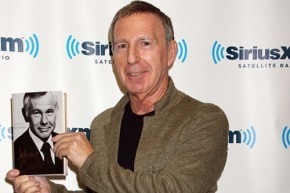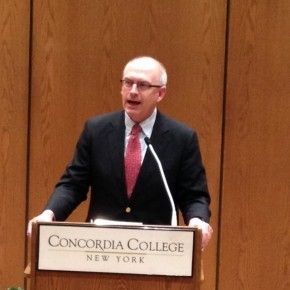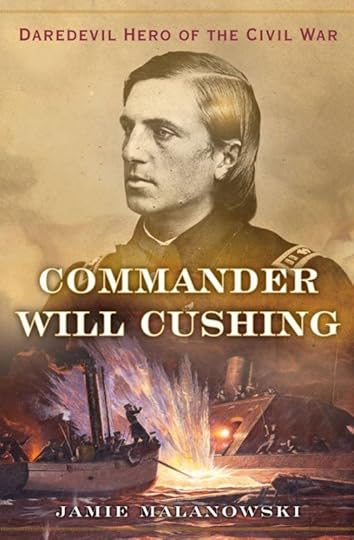Jamie Malanowski's Blog, page 6
April 20, 2014
DEATH OF A QUEEN
 On Friday, April 11, Rizzoli Bookstore, a small capital of civilization and culture on West 57th Street, closed its doors. A victim of rising rents and falling readership, Rizzoli was a great place to kill time; it always made one feel connected to larger, smarter, more beautiful world. Rizzoli’s owners hope to resurrect the store in another locale; we devoutly hope for their successs.
On Friday, April 11, Rizzoli Bookstore, a small capital of civilization and culture on West 57th Street, closed its doors. A victim of rising rents and falling readership, Rizzoli was a great place to kill time; it always made one feel connected to larger, smarter, more beautiful world. Rizzoli’s owners hope to resurrect the store in another locale; we devoutly hope for their successs.
BUSHKIN IN WOODSTOCK
 On Sunday April 6th, a rather glorious day, I drove up to Woodstock to attend the Biographers Panel at the Woodstock Writers Festival, where my friend Henry Bushkin was holding forth about his memoir Johnny Carson. The panel, which was hosted by Will Hermes, a music writer who is working on a biography of Lou Reed, and included J. Michael Lennon, author of a biography of the Norman Mailer; Holly George Warren, the biographer of Alex Chilton; and Tom Folsom, author of a biography of Dennis Hopper. A lively and informative panel!
On Sunday April 6th, a rather glorious day, I drove up to Woodstock to attend the Biographers Panel at the Woodstock Writers Festival, where my friend Henry Bushkin was holding forth about his memoir Johnny Carson. The panel, which was hosted by Will Hermes, a music writer who is working on a biography of Lou Reed, and included J. Michael Lennon, author of a biography of the Norman Mailer; Holly George Warren, the biographer of Alex Chilton; and Tom Folsom, author of a biography of Dennis Hopper. A lively and informative panel!
April 5, 2014
PHIL LESH AND FRIENDS


 Dave Jensen and I saw Phil Lesh and Friends at the Capitol Theater in Port Chester last night. Pretty good show, undermined by a gabby crowd that kept yakking whenever the band turned mellow, jazzy or trippy. Lesh, the bassist for the Grateful Dead, was accompanied by John Kadlecik, Jeff Chimenti, Joe Russo, a fabulous violinist whose name was something like Tynsdale, and our friends Larry Campbell and Teresa Williams. Highlights: Friend of the Devil, Tennessee Jed, Not Fade Away, and Teresa’s powerful River Deep, Mountain High.
Dave Jensen and I saw Phil Lesh and Friends at the Capitol Theater in Port Chester last night. Pretty good show, undermined by a gabby crowd that kept yakking whenever the band turned mellow, jazzy or trippy. Lesh, the bassist for the Grateful Dead, was accompanied by John Kadlecik, Jeff Chimenti, Joe Russo, a fabulous violinist whose name was something like Tynsdale, and our friends Larry Campbell and Teresa Williams. Highlights: Friend of the Devil, Tennessee Jed, Not Fade Away, and Teresa’s powerful River Deep, Mountain High.
March 9, 2014
SPEECH OF GLORY
 I had the pleasure on Friday night to attend a lecture at Concordia College by one of my favorite authors, Nathaniel Philbrick. He was invited by the Bronxville Historical Society to deliver the 16th Annual Brendan Gill Lecture, named after the eminent New Yorker writer and ardent preservationist. Philbrick’s subjects, with the exception of his book on the Battle of the Little Big Horn, are the sea and New England. I loved his book about whaling and shipwrecks, In the Heart of the Sea; his book about naval exploration and the martinet Charles Wilkes, Sea of Glory; and The Mayflower, his eye-opening book about the Pilgrims and King Philip’s War. He spoke about his most recent book, Bunker Hill. One good anecdote: Colonel William Prescott may or may not have said “Don’t fire until you see the whites of their eyes.” In reality, all the colonial officers were telling their men to hold their fire until the British were close. Prescott may have said those words, or he may have told his men to wait until they could see the splash guards—called half-gaiters—that British soldiers wore around their calves. But as Philbrick said, “‘Don’t fire until you see the whites of their half-gaiters’ just doesn’t have the same ring.” This just goes to show the value of a good editor.
I had the pleasure on Friday night to attend a lecture at Concordia College by one of my favorite authors, Nathaniel Philbrick. He was invited by the Bronxville Historical Society to deliver the 16th Annual Brendan Gill Lecture, named after the eminent New Yorker writer and ardent preservationist. Philbrick’s subjects, with the exception of his book on the Battle of the Little Big Horn, are the sea and New England. I loved his book about whaling and shipwrecks, In the Heart of the Sea; his book about naval exploration and the martinet Charles Wilkes, Sea of Glory; and The Mayflower, his eye-opening book about the Pilgrims and King Philip’s War. He spoke about his most recent book, Bunker Hill. One good anecdote: Colonel William Prescott may or may not have said “Don’t fire until you see the whites of their eyes.” In reality, all the colonial officers were telling their men to hold their fire until the British were close. Prescott may have said those words, or he may have told his men to wait until they could see the splash guards—called half-gaiters—that British soldiers wore around their calves. But as Philbrick said, “‘Don’t fire until you see the whites of their half-gaiters’ just doesn’t have the same ring.” This just goes to show the value of a good editor.
March 6, 2014
RUSH TO JUDGMENT
Yesterday, noted cineaste Rush Limbaugh offered some ex post facto commentary on the selection of 12 Years a Slave as Best Picture. “There’s no way that movie was not going to win!’’ said Limbaugh. “If it was the only thing that movie won, it was going to win Best Picture. There was no way — it didn’t matter if it’s good or bad; I haven’t seen it — it had the magic word in the title: Slave.”
For the record,here are just some of the movies for which the word slave worked no spell:
Slave (2003), Slave (2009), Slave (2012), I, A Slave, The Slave (1953), The Slave (1962), Slaves (1989), Slaves of New York, Slaves of the Realm, Slaves of Rome, Slaves of Crime, Slaves of Babylon, Slave of Desire, Slaves of the Saints, Slaves to the Underground, Slaves in Bondage, Slaves of Hollywood, Slave of Love, Aido: Slave of Love, Love Slaves of the Amazon;
White Slave, The White Slave, White Slaves, Slave Ship, White Slave Ship, White Slave Traffic, White Slaves of Chinatown, Three Dancing Slaves, Runaway Slave;
Boy Slaves, Slave Girl, Tarzan and the Slave Girl, The Pirate and the Slave Girl, The Warrior and the Slave Girl, Captain Kidd and the Slave Girl, Slave Girls from Beyond Infinity, Goliath and the Rebel Slave, Slave Hunter, Slave Warrior, Slave Piercing, Iron Slaves;
Slave Wife, Slave Queen, Samson and the Slave Queen, Slave Queen of Babylon, Theodora Slave Empress, Prince Among Slaves, Blood Slaves of the Vampire Wolf, Mistress Absolute and a Slave Called Lewis, and Angola 3: Black Panthers and the Last Slave Plantation.
March 4, 2014
“DIVE OR DIE!”
 My latest piece is an exciting tale of greed and desperation. “The Lost Silver of Cabalos Bay” is about six daring and resourceful navy divers, pulled from Japanese prison camps outside Manila, who were dragooned into helping Japanese soldiers try to recover a fortune in silver coins dumped in Manila harbor by the Philippine government. It’s a remarkable tale, a manly man’s story, and my first for WW II History magazine.
My latest piece is an exciting tale of greed and desperation. “The Lost Silver of Cabalos Bay” is about six daring and resourceful navy divers, pulled from Japanese prison camps outside Manila, who were dragooned into helping Japanese soldiers try to recover a fortune in silver coins dumped in Manila harbor by the Philippine government. It’s a remarkable tale, a manly man’s story, and my first for WW II History magazine.
March 1, 2014
THE WOLF HAS ALL THE GRAVITY
The Oscars will be presented tomorrow night, and right now smart money for Best Picture is on Gravity, an engrossing and technically advanced film about one of the oldest plots in the book, that of the marooned person who is running out of time and resources. It’s a fine film, very well directed, featuring two ingratiating performances by Sandra Bullock and George Clooney, and like most Republican Vice Presidential nominees, it has, well, no gravity. Next to Martin Scorsese‘s The Wolf of Wall Street, it is wafer-thin and value-free.
The Wolf of Wall Street speaks to the crisis of our times, namely, the control of the economy by finance and the yawning wealth gap between rich and poor. It is a film that responds to the financial crisis, which is odd, because it has nothing to do with the financial crisis per se, and everything to do with the attitudes that fueled the meltdown. Wall Street today operates in a morality-free zone where anything you can get away with is right, and the film nails its subjects to the wall. Critics have chided The Wolf of Wall Street for celebrating the the excesses and emptiness of the traders. I don’t think it celebrates that life at all. I think it exposes its shallownes, its valulessness.
Is this voraciousness such a new thing? Wasn’t this behind the Crash of ’29, the insider trading fever of the late eighties? True enough, greed always has been part of business. Moreover, it’s hard to say that modern business does anything as immoral as slave trading, or using children, or endangering the lives of industrial workers. But the amorality of marketism, the Reagan-Greenspan idolatry of free markets that fight regulation, and wring every cent our of workers and consumers, and use the superpowers of computers to profit from minute fluctuations of the stock market in ways unrelated to productivity or investment, add up to theft on a grand scale from the workers of the world.
Wall Street today is no longer about making money. It is about becoming super rich. In the Times in January, a former trader named Sam Polk wrote about his “addiction to money” that developed after he went to work on Wall Street. “At the end of my first year,” writes Polk, “I was thrilled to receive a $40,000 bonus. For the first time in my life, I didn’t have to check my balance before I withdrew money. But a week later, a trader who was only four years my senior got hired away by C.S.F.B. for $900,000. After my initial envious shock — his haul was 22 times the size of my bonus — I grew excited at how much money was available. Over the next few years I worked like a maniac and began to move up the Wall Street ladder. I became a bond and credit default swap trader, one of the more lucrative roles in the business. Just four years after I started at Bank of America, Citibank offered me a “1.75 by 2” which means $1.75 million per year for two years, and I used it to get a promotion. I started dating a pretty blonde and rented a loft apartment on Bond Street for $6,000 a month. . . .Still, I was nagged by envy. On a trading desk everyone sits together, from interns to managing directors. When the guy next to you makes $10 million, $1 million or $2 million doesn’t look so sweet. Nonetheless, I was thrilled with my progress. . . .[W]orking elbow to elbow with billionaires, I was a giant fireball of greed. I’d think about how my colleagues could buy Micronesia if they wanted to, or become mayor of New York City. They didn’t just have money; they had power — power beyond getting a table at Le Bernardin. Senators came to their offices. They were royalty. I wanted a billion dollars. It’s staggering to think that in the course of five years, I’d gone from being thrilled at my first bonus — $40,000 — to being disappointed when, my second year at the hedge fund, I was paid “only” $1.5 million. But in the end, it was actually my absurdly wealthy bosses who helped me see the limitations of unlimited wealth. I was in a meeting with one of them, and a few other traders, and they were talking about the new hedge-fund regulations. Most everyone on Wall Street thought they were a bad idea. “But isn’t it better for the system as a whole?” I asked. The room went quiet, and my boss shot me a withering look. I remember his saying, “I don’t have the brain capacity to think about the system as a whole. All I’m concerned with is how this affects our company.” I felt as if I’d been punched in the gut. He was afraid of losing money, despite all that he had. From that moment on, I started to see Wall Street with new eyes. I noticed the vitriol that traders directed at the government for limiting bonuses after the crash. I heard the fury in their voices at the mention of higher taxes. These traders despised anything or anyone that threatened their bonuses. Ever see what a drug addict is like when he’s used up his junk? He’ll do anything — walk 20 miles in the snow, rob a grandma — to get a fix. Wall Street was like that. In the months before bonuses were handed out, the trading floor started to feel like a neighborhood in “The Wire” when the heroin runs out.”
That need for ever-increasing amounts of money is what The Wolf of Wall Street dramatizes: Jordan Belfort, the Wolf of the title who is played by Leonardo di Caprio, is hooked on making money. No moral paragon to begin with, he grows more destructive of his family and friends and himself as his need to make money keeps growing, Although he mouths the traditional Wall Street moral spin about investment, Belfort’s game is all about taking the investor’s money, no matter what line of dishonesty is necessary. Scorsese identifies a kind of animal rapaciousness that lives within each of us, a spirit that Wall Street not only unleashes, but provokes to more audacious predations.
In an early scene in the film, above, young Belfort is tuned into this spirit by a mentor played by Matthew McConaughey. It’s a funny scene–McConaughey is kind of over-the-top, but as the film progresses we see that is as prescient as John the Baptist. He is the one who introduces the animal appeal at work here.
By the final sequence of the film, we see that Belfort has infested this spirit in hundreds of others–despite abundant evidence that such greed is manifestly injurious to us. In this masterful sequence, we see Belfort just as he has determined to act against the wise advice of his father and his lawyer, and reject a plea-bargain that would have cost him his firm but preserved ill-gotten his wealth. Instead, he summons the spirits–“the animal spirits” that John Maynard Keynes recognized?–and defiantly rejects the government’s deal. He cannot stop himself.
And what happens? He sort of gets away with it. He receives a a three-year stretch at a country club prison, surrenders much of his money but remains quite rich, and maintains the ability to earn. We see the poor honest FBI agent (an excellent Kyle Chandler) going home on the subway, we see the little people of the world leading their sad and dismal lives, and we see that Belfort remains a rich, widely admired pig. In a masterstroke of understatemnt, the film ends looking into the faces of a room full of aspiring salesmen, people who covet wealth and want the extravagantly indulgent life of Jordan Belfort. As we see their eager faces, the music comes up. Scorsese, not known for his subtlety, picked a a jazz instrumental. The title of the piece is `Cast Your Fate to the Wind.”
It’s still your choice–you’ve been warned.
January 31, 2014
January 28, 2014
PETE SEEGER 1919-2014
Pete Seeger, a great American, has died.
In 2006, Alec Wilkinson wrote a profile of Seeger for The New Yorker. It ended like this:
Here is a story told to me lately by a man named John Cronin, who is the director of the Pace Academy for the Environment, at Pace University. Cronin has known Seeger for thirty years. “About two winters ago, on Route 9 outside Beacon, one winter day, it was freezing—rainy and slushy, a miserable winter day—the war in Iraq is just heating up and the country’s in a poor mood,” Cronin said. “I’m driving north, and on the other side of the road I see from the back a tall, slim figure in a hood and coat. I’m looking, and I can tell it’s Pete, He’s standing there all by himself, and he’s holding up a big piece of cardboard that clearly has something written on it. Cars and trucks are going by him. He’s getting wet. He’s holding the homemade sign above his head—he’s very tall, and his chin is raised the way he does when he sings—and he’s turning the sign in a semicircle, so that the drivers can see it as they pass, and some people are honking and waving at him, and some people are giving him the finger. He’s eighty-four years old. I know he’s got some purpose, of course, but I don’t know what it is. What struck me is that, whatever his intentions are, and obviously he wants people to notice what he’s doing, he wants to make an impression—anyway, whatever they are, he doesn’t call the newspapers and say, ‘I’m Pete Seeger, here’s what I’m going to do.’ He doesn’t cultivate publicity. That isn’t what he does. He’s far more modest than that. He would never make a fuss. He’s just standing out there in the cold and the sleet like a scarecrow. I go a little bit down the road, so that I can turn and come back, and when I get him in view again, this solitary and elderly figure, I see that what he’s written on the sign is ‘Peace.’”
MORE THAN WILLIN’
My friend Dave Jensen and I went to the Capitol Theater in Port CHester last Friday night to catch the Midnight Ramble Band. The band did nothing to diappoint, and even supplied a surpise: the rpesence of Billy Payne, the keyboardist of Little Feat. Payne’s presence added a different flavor to the show, mostly through the inclusion of four of five numbers built around his repertoire. By far the best of the sings, and the night’s greatest highlight, was `Willin’, elevated by Theresa Williams’ powerful vocals and Larry Campbell‘s haunting violin.




